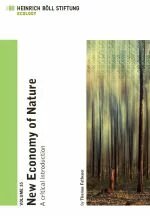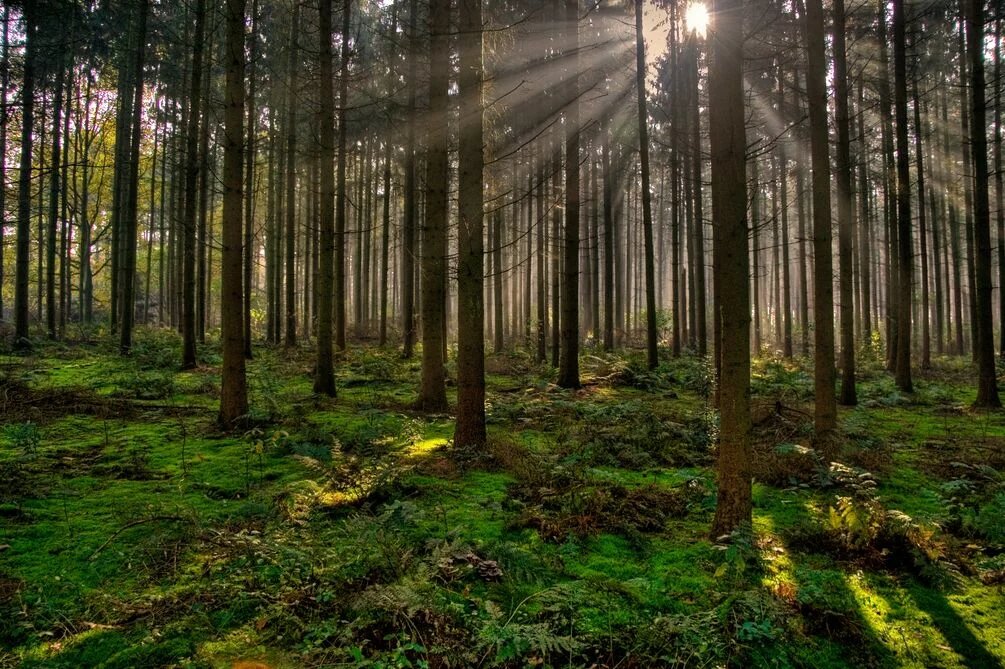

The evidence is far from reassuring: although the critical diagnoses of global environmental problems have long been delivered, the state of the world continues to worsen. The year 2012 was a record year for global CO2 emissions. With perfect timing that message of doom came twenty years after the adoption of the Framework Convention on Climate Change in Rio de Janeiro and in the year of the Rio+20 Conference. In 2013 the International Energy Agency – certainly not a radical environmental group – gave its sombre verdict: “The world is not on track to meet the target agreed by governments to limit the long-term rise in the average global temperature to 2 degrees Celsius (°C).”[1]
Other indicators of how the world's environmental state is deteriorating are equally alarming. On August 20 we stepped forward into Earth Overshoot Day, the day on which the world’s resource consumption – calculated by the Global Footprint Network – crosses tolerable limits. In the year 2000, the resources for sustainable living and production and consumption were sufficient to last until October 9.
Equally widespread as the alarming diagnoses are resolute calls for action from politicians: “What is overlooked time after time in this debate is that, if we carry on the same as in the past, although we have no immediate worries, this inaction will have terrible consequences – this is plainly pointed out by the Stern Report and prior publications. Therefore it is my firm belief that the best option for all of us in the world is to change something, instead of doing nothing and burdening ourselves with catastrophic side-effects.” A clear statement from German Chancellor Angela Merkel at the Third Petersberg Climate Dialogue in 2012.[2]
As we accumulate knowledge we gain ever-increasing clarity about the necessity for action, but there is no sign of a global policy that holds out any likelihood of solving the problems identified. This does not apply to climate change alone. The second major international agreement to emerge from the Rio 92 Summit was dedicated to the conservation of biodiversity. Here again, the results have not been encouraging. The Millennium Development Goal of halting biodiversity loss by 2010 was not attained. Nor has the third Rio 92 convention, the United Nations Convention to Combat Desertification (UNCCD) succeeded in preventing the loss of fertile soils and the encroachment of deserts.
Decades after having identified the key global environmental problems, we have barely made any headway towards solving them. As a consequence, the prospect of a global regulatory process has suffered untold damage if it has not been wasted altogether. Despite all its shortcomings, the adoption of the Kyoto Protocol seemed to convince many actors that the prospect of a lasting global climate regime was a realistic goal. After the Copenhagen Climate Change Conference, such hopes have largely dwindled. Even if there are numerous rationales for sticking with multilateral processes, hardly anyone now expects them to yield a global solution. Instead of a great master plan, countless unmanageable processes have been set in motion in the quest for responses to the global problems. The diagnosis that “nothing is being done” would be completely wrong; on the contrary, a great deal is being done. And there is constant news of positive developments: Germany is making good progress in expanding renewable energies; globally the number of protected areas is rising and there is a new mechanism (REDD) that might protect the tropical rainforest effectively. But are the conflicting and multi-layered processes operating on the right level to address the global challenges? In view of certain tendencies and events in recent years, it is legitimate to have doubts:
- There is a new upturn in the exploitation of fossil fuels (oil, coal, gas). High prices have favoured the use of new technologies (fracking) and prospecting in new oilfields (deep sea, tar sands, shale oil). According to the predictions of the economic actors involved (e.g. BP) in twenty years time, oil gas and coal will still account for 80 percent of the global energy supply.
- Political discourse in Europe is dominated by the economic and borrowing crisis. Policy-makers prove to be considerably more effective at taking action to bail out banks than to resolve environmental issues.
- As problems of social injustice begin to re-emerge (the low-pay sector, poverty pensions), questions of environmental sustainability return to being secondary considerations in political debates. The usual discussions about justice barely touch upon ecological dimensions.
- Due to high indebtedness, the scope for expenditure from public budgets is low and the social consensus leans more towards the prioritization of educational spending, in order to guarantee competitiveness.
- In recent years it has become clear that ecologically motivated policy pathways can end up competing with each other or causing unintended negative consequences. For instance, the biofuels advocated as a response to climate change are turning out to be a danger for food security and biodiversity.
- The transformation of energy systems is in no way a simple win-win pathway, but a complex challenge with potential for conflict and frustration.
These are just a few aspects that demarcate a confusing situation in which old pathways and solutions obviously no longer lead to the goal. Who is minded to carry on relying primarily on the “multilateral processes” ticket? There even seems little point in raising the volume of the prophecies of doom – the prophets have already shouted themselves hoarse. And after the biofuels disaster the faith in magical win-win solutions has given way to an entirely healthy process of facing up to reality.
A time, then, for reflections on the feasibility of socio-ecological transformations but also a time in which a new paradigm and novel answers are called for. Against this backdrop, it is no surprise that a new idea has taken hold in the political arena. In the second decade of the century, increasing numbers of publications and institutions are subscribing to the idea of the “green economy”. A not-insignificant alliance of the UNEP, the World Bank and the OECD put forward this paradigm in advance of the Rio+20 Conference.
The idea of the green economy must be seen in the context, briefly outlined here, of the failures of the Rio process and hence of a global environmental policy. A new Kyoto will not save the climate now; only a transformation of the economy can make the critical difference – that is the message. Although international treaties might foster such a transformation, it need not wait for them or be dependent upon them. Without examining the debate about the green economy in greater depth at this point, let it be said that the economy’s role in supporting an ecological transformation has become a hot topic once again. “It’s the economy, stupid!” is the cry that slaps down environmentalists everywhere. In traditional Marxist contexts, this used to be called the primacy of the economy. It is facilitated by the ubiquitous perception that the public coffers are empty and that states have limited scope for action – not least because they are highly indebted. And so new innovative financing mechanisms, market mechanisms and business initiatives have sprung up all over the place: “Ecology goes business.” This new economically influenced ecology emphasizes the opportunities but not the risks. Climate change and biodiversity loss are viewed as risks but also, just as importantly, as “business opportunities”.
In the following, this specific aspect of the conflict over the green economy will be presented and discussed in more detail. It revolves around the question of how far a value can be placed on the “services” of nature. For a new economics that hopes to overcome the traditional economy’s disregarding or ignoring of nature, this is a key question – and a contentious point, which provokes savage polemic over an impending “monetarization and financialization” of nature.
More about:
New Economy of Nature - A critical Introductionby Thomas Fatheuer
Publication Series on Ecology
Date of Publication: April 2014
Number of Pages: 72
License: CC-BY-NC-ND
ISBN: 978-3-86928-120-9
Endnotes: